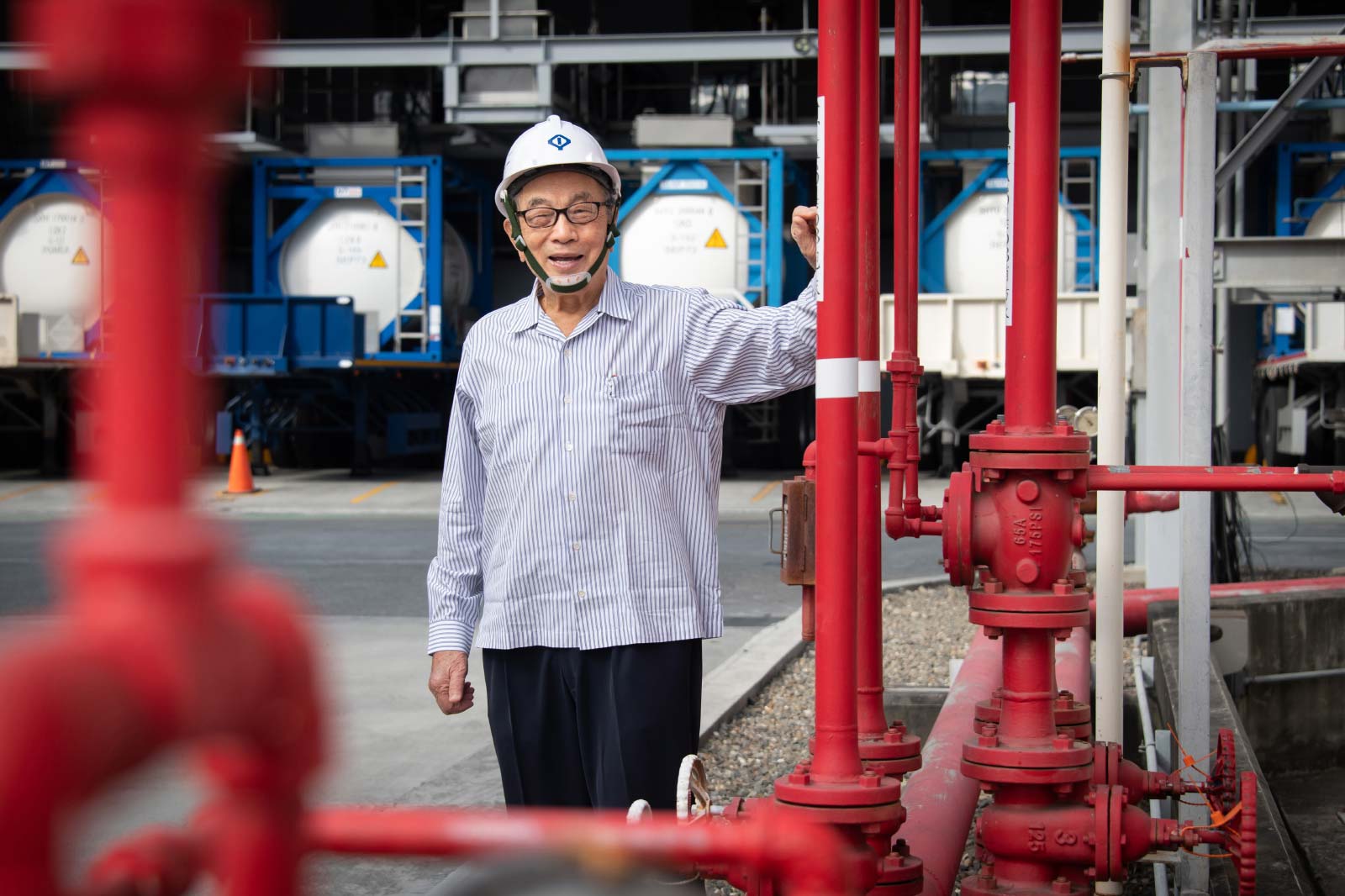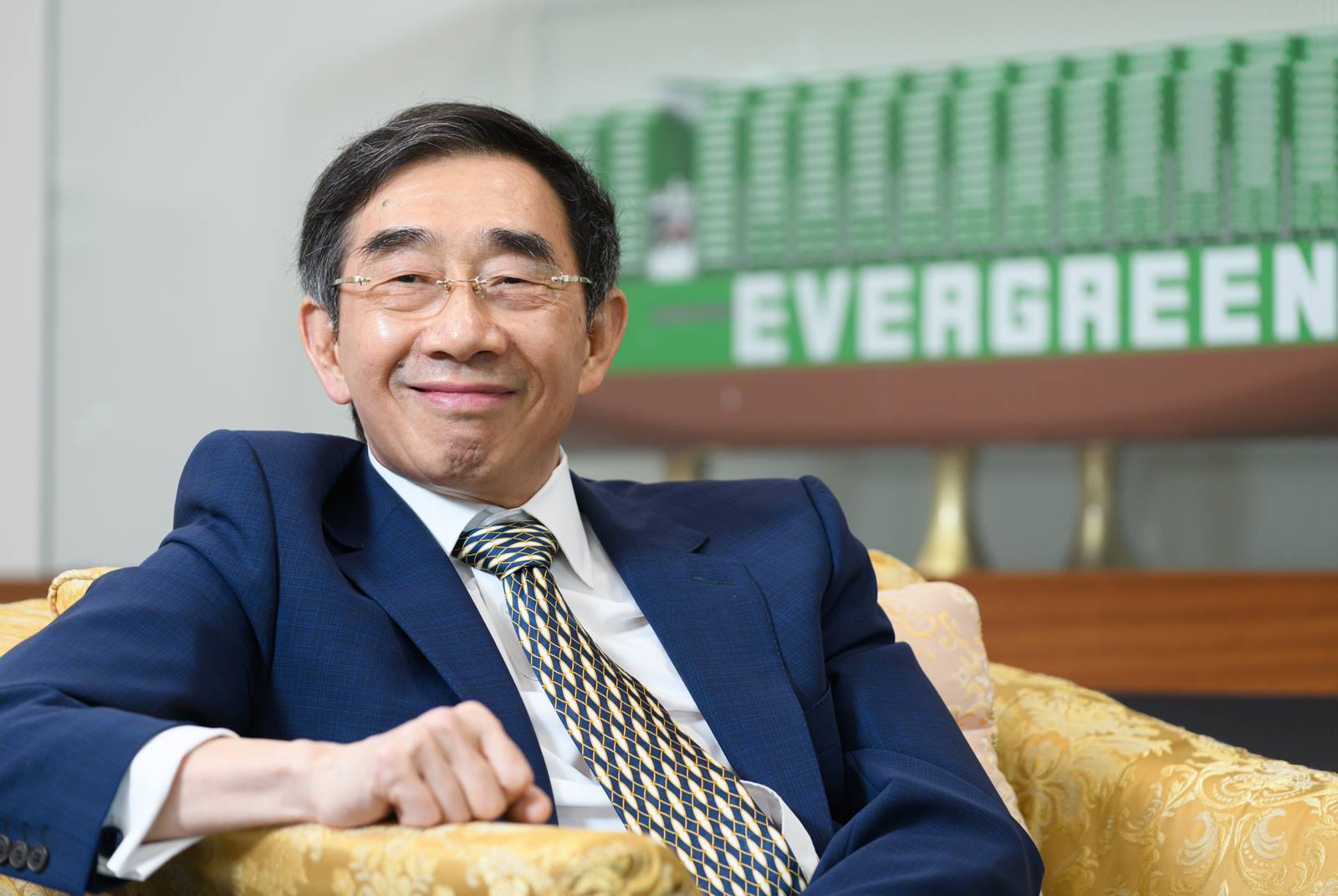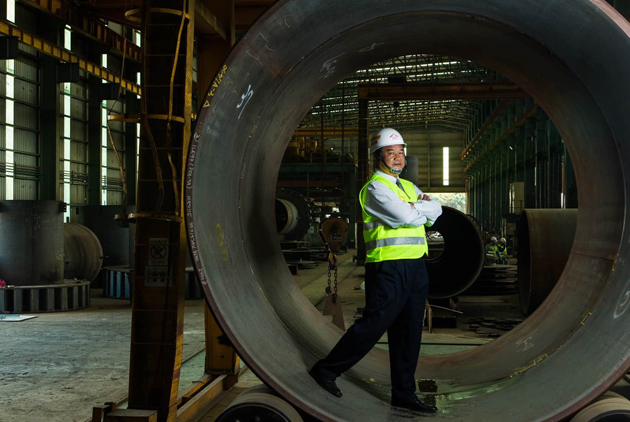2017 Local Leader Approval Survey
Major Reshuffling of Top Stars

Source:Chieh-Ying Chiu
CommonWealth Magazine's latest local leader approval survey results are out. As the bipartisan divide between the blue and green political camps wanes, many veteran mayors and magistrates are seeing their stars fall, while rookies are rising to new highs.
Views
Major Reshuffling of Top Stars
By Lu Kuo-chenFrom CommonWealth Magazine (vol. 631 )
The just concluded highly successful World University Games (Universiade) in Taipei, the largest international sports event ever held in Taiwan, greatly boosted the popularity of Taipei Mayor Ko Wen-je, catapulting him up seven places from rank 21 to 14.

Meanwhile, the popularity ranking of the leaders of Taiwan's 22 cities and counties saw a big reshuffle. The heads of Hsinchu City, Taoyuan City and Nantou County toppled longtime political stars such as Tainan Mayor William Lai and Kaohsiung Mayor Chen Chu from the top five. (See table)

As new stars rise, the old stars fade. Yet, although his star has lost some of its luster, Lai, the political superstar who cannot stand for reelection next year, still advanced his political career by joining the central government as premier after the survey was conducted.
Where is Taiwan's next William Lai? With local elections just a year away, competition is already heated for those seeking to become the superstars of tomorrow’s political scene.
Two Thirds of Blue Camp Municipality Leaders Move up in Ranking
This year's survey results show a structural shift in the blue-green political divide. The Kuomintang (KMT) and its allies suffered a humiliating defeat in the nine-plus-one local elections in late 2014 as well as the subsequent general and presidential elections of early 2016. Yet the survey results indicate there is light at the end of the tunnel as blue camp local government leaders are gaining in popularity.
Four out of the six incumbent KMT mayors and magistrates moved up in the rankings or defended their rank. Political rookie Lianjiang County Magistrate Liu Cheng-ying put up the most outstanding performance, grabbing the top spot for the second time in a row. Likewise, Nantou County Magistrate Lin Ming-chen leaped up the ranking from last year's rank 15 to this year's rank five. Taitung County Magistrate Justin Huang, who is serving his second term, advanced with a steady pace over the past three years from rank 10 and rank 8 to rank 6 this year.
New Taipei City Mayor Eric Chu, who did not run for KMT chairman after losing the presidential election and cannot run for reelection in New Taipei City, has kept a low profile this year to keep the political spotlight on Deputy Mayor and likely mayoral candidate Hou You-yi. Chu, nevertheless, gained in popularity, moving up four slots to rank 15.
Half of Green Camp Municipality Leaders See Ranking Slip
Municipal leaders from the ruling Democratic Progressive Party (DPP) were largely unable to maintain their previous approval levels. Only four of the 12 DPP mayors and magistrates improved their ranking, whereas six saw their ranking slip, one held on to his rank, and one continued to bring up the rear.
The best performance was put up by first-time municipality leaders Hsinchu City Mayor Lin Chih-chien and Taoyuan Mayor Cheng Wen-tsan, both made huge advance into the top five after narrowly winning their offices at the end of 2014. Also moving up in the ranking was Taichung Mayor Lin Chia-lung and Chiayi County Magistrate Helen Chang.
The local government heads from the DPP who made it into the top ten this year are Lin Chih-chien, Cheng Wen-tsan, William Lai, Pan Men-an (Pingtung County), Chen Chu, and Helen Chang.
Grabbing six out of ten top spots seems a passable performance for the DPP. Yet a closer look shows that the party's superstars are not shining as brightly as before. Apparently, William Lai and Chen Chu have fallen from the public's graces as they were kicked out of the top five. Lai, who claimed the top spot three years ago and slipped to rank four last year, was relegated to rank seven this year. Chen Chu’s star has also lost much of its luster as she fell to rank nine from the third place she held during the previous two years.
 Local leaders who promote family-friendly measures to boost the birthrate, support working parents and long-term care for the elderly score high in public approval.
Local leaders who promote family-friendly measures to boost the birthrate, support working parents and long-term care for the elderly score high in public approval.

This year's survey results indicate that citizens are no longer focusing on a local leader's political affiliation. Rather, they care more about whether a mayor or magistrate can bring about tangible change. In order to find out what people expect from their local leaders, we made fact-finding trips to the 22 municipalities across the island.
Things Popular Local Leaders Do Right #1
Walking the Talk instead of Empty Promises
First, once first-time mayors or magistrate have settled into their jobs after a few months, their ability to get things done becomes more important than their ability to create issues. Cheng Wen-tsan, who became the top ranked of Taiwan's six special municipality mayors in just three years, is known to follow a punishing work schedule. His Pingtung County colleague and fellow DPP member Pan Meng-an notes, "Cheng works extremely hard; his daily schedule starts at 4 a.m. and only ends at midnight."
But diligently working long hours alone is not enough to win public support. Cheng believes that giving priority to problem-solving is what sets him apart.
Over the past three years, Cheng has aggressively addressed obvious problems in his city and has not hesitated to take action where the central government has failed to act. For example, in some industrial zones in the city that are under the jurisdiction of the Ministry of Economic Affairs, manufacturers complained about the poor quality of certain roads. Cheng took the initiative and challenged the ministry into action by suggesting that the city play a part in the solution "There are five problematic roads; if I repair two, will you do three?" Often such skilled communication makes it difficult for the counterpart to say no. As a result, Cheng has left a deep impression in the corporate world for his ability to solve manufacturers' problems while also understanding citizens' needs.
In an exclusive interview with Sandy Wang, standing member of the Formosa Plastics Group's Administrative Office, in June this year, we asked Wang whom she considers the best municipal leader. She replied immediately that Cheng "is a mayor who does his job and solves problems."
Things Popular Local Leaders do Right #2
Fighting for Jobs, not Ideology
The second approach that has helped local leaders win support from the electorate is fighting unemployment and solving livelihood issues instead of fighting over politically dogmatic positions.
Lue Yue-chang, professor at the Department of Public Administration and Policy of National Taipei University, is a long-term observer of local politics. Lue believes that, at the grassroots level, people's loyalty to certain political parties is weaker because they care most about the problems they encounter in everyday life, particularly unemployment and livelihood issues.
The rise and fall in the ranking of local leaders in central Taiwan clearly shows that measures to boost the local economy resonate with local residents.
Nantou County Magistrate Lin Ming-chen, who originally ranked in the lower half of the list, this year emerged as a black horse, moving up into the top five. In contrast, Changhua County Magistrate Wei Ming-ku and Yunlin County's Lee Chin-yung slipped to the lower ranks. Taichung Mayor Lin Chia-lung, for his part, moved up two slots. The biggest difference in the performance of the four local leaders is in job creation.
Since assuming office in Nantou, Lin has been spending three quarters of his time touring the county, trying to solicit job opportunities in tourism after Chinese visitor arrivals plummeted in the wake of the DPP's return to power. "After the Tsai administration assumed office, the number of Chinese tourists sharply declined because of the 1992 consensus issue. For Nantou, a county that heavily relies on the tourism industry, this was devastating. Some restaurants lost 200 tables' worth of business per month," Lin says.
To prevent further damage to the local economy in case Chinese tourists continued to stay away, Lin pulled out all stops to promote tourism with even more enthusiasm than before. He spent NT$40 million to build Taiwan's highest and longest barrier-free skywalk at Cingjing Farm in the county's Ren'ai Township. Since its opening in May, the elevated trail has attracted 300,000 visitors and generated admission ticket revenue worth more than NT$10 million. "We will probably recoup our investment as early as this year," Lin boasts.
Lin says that tourists will not only walk the trail, but also consume, eat, and stay, creating jobs for the locals, saying, "If I didn't do it this way, the unemployment problem would be even more severe."
 Nantou County Magistrate Lin Ming-chen soared in popularity this year for this efforts to create new jobs in tourism such as by building a barrier-free Skywalk in Cingjing Farm which is drawing droves of visitors from home and abroad.
Nantou County Magistrate Lin Ming-chen soared in popularity this year for this efforts to create new jobs in tourism such as by building a barrier-free Skywalk in Cingjing Farm which is drawing droves of visitors from home and abroad.
In contrast, Changhua County's Wei, who moved into the national spotlight last year when the county refused to extend a permit for a polluting plastic fiber factory owned by the Formosa Plastics Group, did not gain in popularity with his environmentalist stance.
Why not? Tsai Hsiu-chuan, professor at the Department of Political Science at Soochow University, says, "If industry does not come to the municipalities, it will affect citizens' employment. Local government leaders must first of all look after the basic needs of the public. You cannot demand that the locals be idealistic."
Also located in central Taiwan, Yunlin County Magistrate Lee Chin-yung also confronted the Formosa Plastics Group over the permit extension for the Mailiao co-generation power plant. The county eventually backed down, however, and issued the permit.
"They talked big in the beginning, but eventually pressure from various sides forced them to compromise, which in the eyes of the local folks felt like they were sweet-talking us," says Lue. Today, the county's chronic garbage disposal problem remains unsolved and air quality has not improved. These are all issues that directly reflect administrative efficiency.
As Professor Chang remarks, "The goals of Wei Ming-ku and Lee Chin-yung are probably right, but they must consider their means."
In central Taiwan, Taichung's Lin Chia-lung is a shining example when it comes to creating jobs. While actively pushing for better flood control and improved domestic security, Lin also had an ear for business interests. First, he solved the problem of TSMC's factory expansion in the Taichung Science Park, and then he helped U.S. memory maker Micron Technology find a solution for factory buildings that could not be connected. These investments contributed to turning the Taichung Science Park into a new semiconductor hub, and has created several thousand new jobs.
Chang observes that Lin's advance in the rankings was not an easy feat, given that Taichung's political landscape is complicated and nearly split 50-50 between the green and blue camps.
Things Popular Local Leaders Do Right #3
Caring for Old and Young to Let People be Productive
The third approach that translates into voter satisfaction is boosting the birthrate and providing long-term care for the elderly.
Taiwan is already an aging society, and its declining birthrate is aggravating the problem. Local leaders who manage to persuade young people to be willing or dare to have children and also find ways to provide elderly care naturally enjoy high approval among citizens.
This year, Hsinchu Mayor Lin Chih-chien's surge to rank 3 is the best case in point. Lin created the slogan "I will help take care of the very young and the very old so that the young can have peace of mind and boost the economy." Since Lin took office, the birthrate has increased, rejuvenating the city and filling it with vitality. Therefore, Lin's soaring popularity should not come as a surprise.
Also actively encouraging young couples to start a family are New Taipei City, Taichung and Taoyuan. Lue notes that these cities provide a whole array of subsidies for childbirth, child rearing and long-term care. Such measures that directly affect people's personal lives easily win public support.
Things Popular Local Leaders Do Right #4
No Haste, Only Sustainable Measures Last
Our survey shows that higher rankings are not exclusively the domain of local leaders who push the economy and create jobs.
Nantou's Lin is such an example. He placed fifth in the overall satisfaction ranking, but in the expert ranking he came in at only ninth place. Taiwan Environmental Protection Union Secretary-General Chen Bing-heng points out, "In the eyes of us environmental experts, the Skywalk is very shoddy. They were lucky that typhoons did not hit Nantou this year. As soon as a typhoon hits Nantou, soil and water conservation will show its true face."
Changhua County's Wei is another example. Several experts have pointed out that Wei failed to run effective information campaigns and reporting policy measures regarding the illegal dumping of industrial waste on farmland. Moreover, Changhua has a high ratio of illegally built factories. There is a great deal of room for improvement, particularly with regard to the reporting of high-polluting illegal factories, the tracing of the sources of pollution, and the investigation of those responsible for the offenses.
Wei, who wasn't rewarded for his efforts either in the approval survey or the expert ranking, was naturally relegated to the lower half of the list.
With local elections due in one year, the leaders of Taiwan's 22 counties and cities have already entered the final stretch before the finish line. In an era of highly volatile public opinion, who is able to defend or win their office will have implications for the rise and fall of Taiwan's political forces.
Translated from the Chinese by Susanne Ganz






